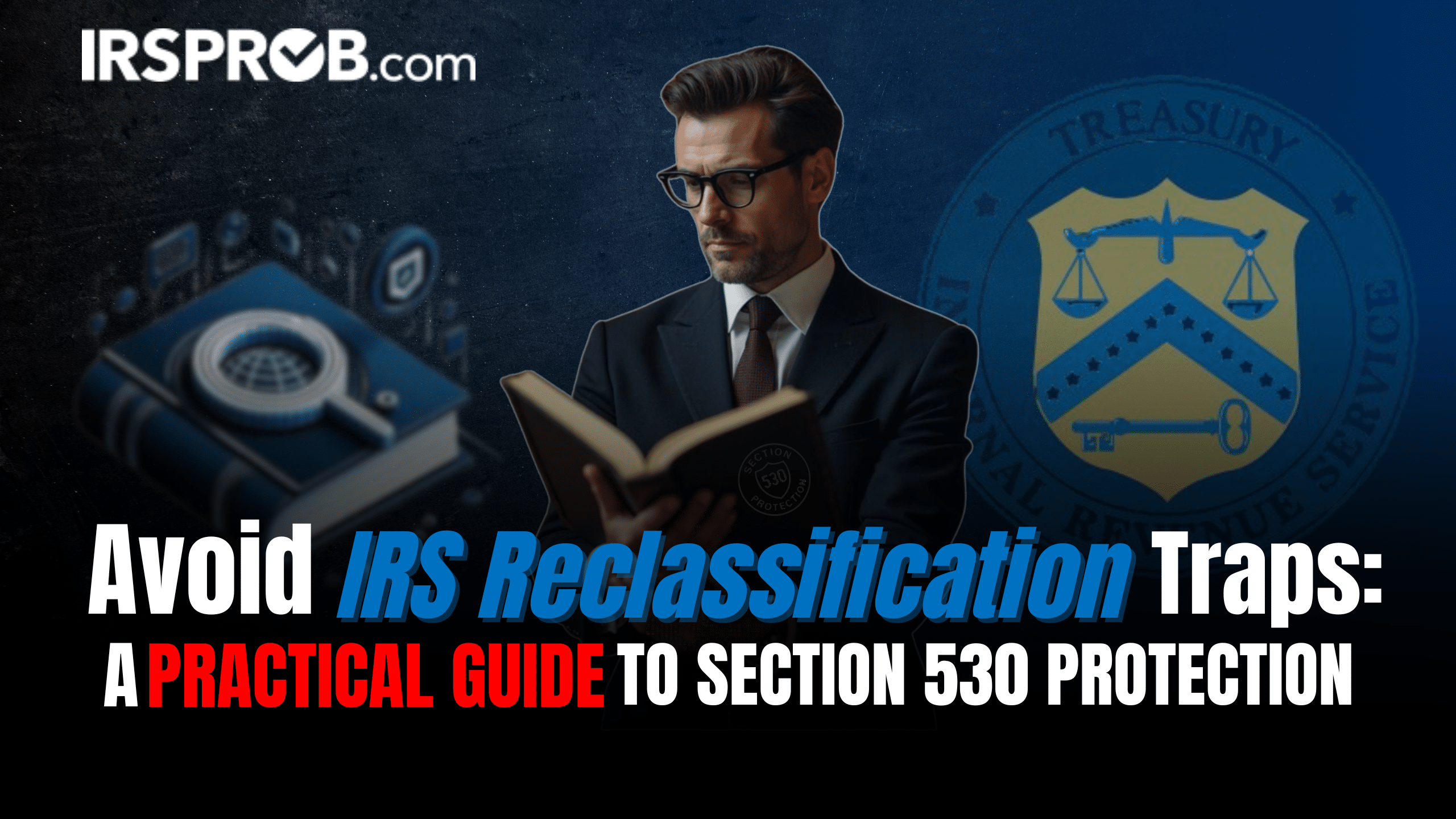Understanding the Offer in Compromise Process in Texas
The Offer in Compromise (OIC) process is one of the most valuable tools available for Texas taxpayers who find themselves unable to pay their full tax liability. Essentially, the OIC program allows eligible taxpayers to settle their tax debt for less than the total amount owed. By offering a compromise, the IRS can resolve cases where the full payment of taxes would cause undue financial hardship.
In Texas, as in other parts of the United States, the IRS evaluates each OIC request meticulously. The review process is based on comprehensive financial details, including income, expenses, assets, and liabilities. With the right documentation, professional guidance, and a clear understanding of how to navigate offer in compromise texas, taxpayers can significantly increase their chances of a successful outcome.
Taxpayers in Texas who are facing dire financial circumstances can leverage this process to negotiate and achieve a more manageable resolution. This section will provide a detailed explanation of the OIC process and outline the criteria that influence the decision-making process of tax authorities.
Preparation and Eligibility for an Offer in Compromise
Before entering the OIC process, it is crucial to understand who qualifies and what preparations need to be made. Eligibility for an Offer in Compromise is determined through a rigorous analysis of the taxpayer’s financial situation, including current income streams, available assets, and existing liabilities. One must be prepared to provide extensive documentation to support the claim of financial hardship.
Taxpayers must also consider whether they are in compliance with all filing and payment requirements before applying for an OIC. Any outstanding returns, unfiled forms, or previous non-compliance issues must be resolved. In Texas, the process of navigating the offer in compromise texas can be complex, so ensuring that every piece of financial information is meticulously organized and presented is essential for a positive outcome.
The preparation stage involves gathering necessary data such as bank statements, investment account summaries, expense records, and proof of any extenuating circumstances. Engaging a tax professional who is experienced in local tax regulations and IRS protocols can streamline this process. Their expertise is instrumental in developing a compelling case that demonstrates genuine inability to pay the full tax liability.
Navigating the Offer in Compromise Process in Texas
Dealing with the IRS is seldom a straightforward task, especially when navigating the offer in compromise texas. This section provides a step-by-step breakdown of what taxpayers need to expect during the application process, from initial submission to final resolution. The journey begins by filling out IRS Form 656 and its accompanying Form 433-A or Form 433-B, depending on the taxpayer’s situation.
Once the forms are submitted, the IRS conducts a detailed evaluation of the taxpayer’s ability to pay. This involves an in-depth review of the submitted financial documentation and an examination of the taxpayer’s overall financial landscape. In Texas, many taxpayers find themselves facing unique challenges—ranging from seasonal employment variations to distinct regional economic conditions—that can complicate the process further.
Understanding local factors is essential when you decide to navigate offer in compromise texas. Many tax professionals in the region have in-depth knowledge of the nuances that impact these cases, including regional cost of living differences and local legal precedents. Engaging an experienced professional not only increases the chances of success but also eases the often stressful encounter with IRS procedures.
Common Challenges and How to Overcome Them
Despite the potential relief offered by an OIC, many Texas taxpayers encounter several hurdles along the way. One of the most common issues involves gathering and presenting the required financial documentation in a manner that aligns with the IRS’s stringent review process. Missteps in documentation or an incomplete financial picture can lead to delays or even outright rejection of an offer.
Another challenge is overcoming misunderstandings regarding eligibility. Many taxpayers assume that the mere existence of unmet tax obligations automatically qualifies them for an OIC, which is not the case. Detailed proof of financial hardship must be provided, and the taxpayer must illustrate that paying in full would result in significant hardship. This can include demonstrating that liquidating assets might not even be sufficient to cover the debt without jeopardizing basic living expenses.
There is also the issue of timing. The IRS typically takes several months to process an OIC, during which precise financial circumstances might change. To overcome these challenges, it is advisable to work closely with a tax professional who stays updated on changes in IRS policies and Texas-specific trends. Their expertise can help in adjusting strategies mid-process if needed, ensuring that the application remains as compelling as possible.
Role of Financial Documentation and Compliance
Financial documentation is the backbone of any successful Offer in Compromise application. The IRS scrutinizes every detail of a taxpayer’s financial situation, making comprehensive and organized documentation essential. This includes detailed lists of income, expense records, asset inventories, and liabilities. In Texas, these records must also reflect region-specific financial patterns to provide a transparent picture of the taxpayer’s situation.
Maintaining compliance with IRS filing requirements is another critical aspect. The IRS will not entertain an OIC if the taxpayer is not current on all required filings. This means that before initiating the process, any overdue tax return must be completed and filed, and any outstanding taxes must be managed according to IRS guidelines. Given the complexity of the process, even minor discrepancies in documentation or compliance can result in significant setbacks.
To ensure success, it is highly recommended that taxpayers create a comprehensive checklist of all required documents and consult with professionals who specialize in IRS negotiations and compliance. Their insights can help prevent errors and ensure that every aspect of the financial documentation clearly demonstrates the taxpayer’s financial hardship and inability to pay the full tax liability. In turn, this makes it easier for the IRS to understand and validate the request.
Expert Strategies to Increase Success Rates
Success in navigating the offer in compromise texas isn’t left to chance. There are numerous expert strategies that can increase the odds of a positive outcome for taxpayers. One such strategy includes comprehensive financial planning that addresses both current and future economic scenarios. By working with a tax professional early in the process, taxpayers can develop a robust financial profile that accurately reflects their hardship.
Another critical strategy is to ensure that no stone is left unturned in documenting every element of the financial situation. This means not only providing standard financial records but also supplementary information that can help to paint a full picture of personal or business-related hardships. Detailed explanations regarding fluctuations in income, unexpected medical expenses, or unique economic challenges associated with Texas living can make a substantial difference in how the IRS perceives the offer.
Experts also recommend maintaining open lines of communication with the IRS during the review process. Promptly providing additional documentation or details when requested can show a proactive approach and help build trust between the taxpayer and the IRS. Ultimately, the goal is to present an unambiguous depiction of why a full payment would be unfeasible, bolstering the taxpayer’s case for a reduced settlement.
Future Trends and Updates in Texas Tax Resolution
The landscape of tax resolution in Texas is continually evolving, influenced by legislative changes, economic conditions, and shifts in IRS policy. Taxpayers and professionals alike must stay informed about these trends to effectively navigate the offer in compromise texas process. Recently, there have been discussions about potential changes that could streamline applications and reduce processing times, although the specifics continue to evolve.
Innovations in digital submission protocols and enhanced online tools for tracking application progress are beginning to reshape how taxpayers interact with tax authorities. These trends not only improve transparency but also speed up the evaluation process, offering Texas taxpayers a more efficient way to manage their cases. Moreover, staying updated with local tax laws and federal guidelines ensures that every aspect of the application is aligned with the latest requirements.
Additionally, there is a growing emphasis on personalized financial advice from IRS Prob and other tax professionals who are now leveraging advanced analytics to predict outcomes and tailor strategies. This proactive approach to case management is becoming a standout characteristic in successful OIC cases. As these trends continue to unfold, it is essential for those seeking relief to work with professionals who understand both local and national dynamics in the tax resolution space.
Taxpayer Experiences: Lessons Learned and Success Stories
Real-life experiences provide invaluable insights into successfully mastering the Offer in Compromise process in Texas. Many taxpayers who once struggled under the weight of substantial tax debts have shared their journeys, emphasizing the importance of detailed documentation, expert guidance, and an unwavering commitment to clear and honest communication with the IRS.
Consider the case of a small business owner in Houston who had accumulated significant tax liabilities due to a combination of unexpected medical expenditures and declining business performance. By partnering with a seasoned tax professional familiar with Texas-specific challenges, the taxpayer was able to present a thorough financial analysis that highlighted the inability to repay the full amount. The IRS ultimately accepted the compromise offer, enabling the owner to keep the business afloat while making manageable payments.
Another success story comes from a retiree in Dallas who had inherited a complex financial situation. Despite the apparent difficulty, a detailed financial assessment and proactive submission of supporting documents convinced the IRS that the full tax obligation would result in dire economic consequences. These live experiences reveal that while the challenges are significant, success is undoubtedly attainable with the right approach and steadfast persistence.
Frequently Asked Questions About Navigating the Offer in Compromise in Texas
Pro Tips from IRS Prob
Pro Tip #1: Document Every Detail
One of the fundamental keys to navigating offer in compromise texas is the meticulous preservation of every financial record. Ensure that receipts, bank statements, payroll records, and any proof of economic hardship are organized and ready for review. Detailed documentation not only validates your income and expenses but also helps construct a credible case that resonates with IRS evaluators.
Pro Tip #2: Get Professional Guidance Early
Engaging a tax professional with specific expertise in OIC cases in Texas can drastically improve your likelihood of success. These experts understand the local nuances and IRS protocols, assisting you in tailoring your application to fit the specific challenges of navigating offer in compromise texas. Early collaboration can help preempt problems before they arise.
Pro Tip #3: Stay Updated with Policy Changes
The tax landscape is ever-evolving, with frequent modifications in policies and procedures. Regularly consult authoritative resources and maintain an ongoing dialogue with your tax professional to ensure that your application is aligned with the most current IRS guidelines. Up-to-date compliance is an essential element in not only meeting your application requirements but also expediting the review process.
In conclusion, the Offer in Compromise process provides a viable lifeline for Texas taxpayers facing insurmountable tax debt. By understanding the detailed requirements, meticulously preparing financial documentation, and leveraging expert guidance, you can effectively navigate the offer in compromise texas process. Each step, from eligibility determination to gathering the required records, plays a decisive role in establishing your case for financial relief. With persistent dedication and an organized approach, even complex tax issues can be resolved, offering you a fresh financial start and peace of mind. As you proceed through this challenging path, remember that every detail matters, and professional support can make all the difference.
Throughout this comprehensive guide, we have covered the fundamental aspects of mastering the Offer in Compromise process in Texas—from understanding basic principles to implementing expert strategies for a successful application. By embracing these insights, Texas taxpayers can significantly enhance their chances of achieving a favorable resolution with the IRS, thereby managing their tax burdens more effectively and safeguarding their financial future.
Whether you are currently struggling under an overwhelming amount of tax debt or planning for a more manageable financial outlook, the information in this blog is designed to empower you every step of the way. The journey might be intricate, but with the right preparations, diligent documentation, and expert advice, you can overcome the challenges and move towards long-term financial stability.
Remember, the key is persistence, understanding, and ensuring that every movement in the process is backed by reliable documentation and professional insight. With each step, you are better equipped to navigate offer in compromise texas and transform a potentially burdensome tax liability into a manageable solution that aligns with your financial reality. Take your time, gather your resources, and trust the process—your future financial health is well worth the effort.









